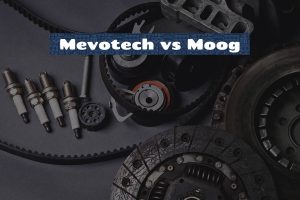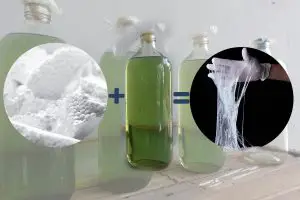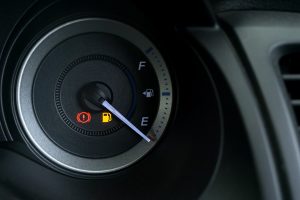Diesel engines have long been known for their efficiency and durability. But with environmental concerns growing, the focus has shifted to reducing harmful emissions from these engines. A crucial development emerged in this context: Diesel Exhaust Fluid (DEF), transforming the diesel industry.
DEF is a solution consisting of urea and water that turns nitrogen oxides (NOx) into nitrogen and water. Introduced in 2010 in the US, DEF became essential for meeting emission regulations in diesel vehicles.
This article will explore the use of DEF in diesel engines, its benefits, and its challenges.
Understanding Diesel Exhaust Fluid (DEF)
Diesel Exhaust Fluid (DEF) plays a key role in reducing harmful emissions. As governments and industries push for greener alternatives, DEF has emerged as a solution to meet environmental regulations.
What is DEF?
DEF is a clear, non-toxic liquid used in diesel engines to break down dangerous NOx emissions into harmless nitrogen and water. It consists of 32.5% urea and 67.5% deionized water.
- Urea: A compound often used in fertilizers, urea in DEF serves as the reactive substance that aids in the breakdown of NOx emissions.
- Deionized Water: This type of water has had most of its mineral ions removed. Mixing it with urea allows for the proper concentration that effectively reduces NOx.
- Freezing and Boiling Points: DEF freezes at 11°F (-12°C) and boils at 219°F (104°C). Proper storage and handling will maintain its quality.
- Shelf Life: DEF generally has a shelf life of up to two years if stored correctly.
How DEF Works in Diesel Engines
DEF is sprayed into the exhaust stream of diesel vehicles. It breaks down dangerous NOx emissions into harmless nitrogen and water vapor, reducing the harmful effects on the environment.
Here’s a quick overview of how DEF works:
- Injection into Exhaust Stream: DEF is stored in a separate tank in the vehicle and is injected into the exhaust stream as a fine mist.
- Chemical Reaction with NOx: As the DEF solution mixes with the exhaust gases, it turns into ammonia, which then reacts with nitrogen oxides (NOx) emissions.
- Conversion to Harmless Substances: This reaction converts the harmful NOx emissions into nitrogen and water, both of which are harmless and released into the atmosphere.
- Integrated with SCR System: The whole process is controlled by the vehicle’s SCR system, which ensures the correct amount of DEF is injected, optimizing efficiency and effectiveness.
- Monitoring and Maintenance: Modern vehicles often include sensors to monitor DEF levels and quality, alerting drivers when refilling or maintenance is needed.
Benefits and Impact of DEF
The integration of Diesel Exhaust Fluid (DEF) into diesel engines has had profound benefits and impact on various aspects of the automotive industry and environmental conservation.
Environmental Benefits
- Reduction of NOx Emissions: DEF reacts with NOx emissions, converting them into harmless nitrogen and water. This substantially reduces air pollution caused by diesel engines.
- Alignment with Environmental Regulations: Through the adoption of DEF, manufacturers are able to meet increasingly stringent emission standards, contributing to global environmental protection goals.
- Climate Change Mitigation: By reducing NOx emissions, DEF contributes to efforts to mitigate climate change and its associated risks.
Economic Advantages
- Fuel Efficiency Improvements: The implementation of SCR technology with DEF can lead to increased fuel efficiency (around 5%), reducing operating costs for vehicle owners.
- Compliance Cost Savings: Meeting regulatory compliance through DEF implementation helps avoid potential fines and penalties, resulting in savings for manufacturers and operators.
Societal Impact
- Health Benefits: Reduction in NOx emissions leads to improved air quality, which can have positive effects on public health by reducing respiratory issues and other health problems.
- Global Collaboration: The implementation of DEF represents a global effort, fostering collaboration between industries and various stakeholders in pursuing shared environmental goals.
Challenges and Controversies
The implementation of Diesel Exhaust Fluid (DEF) in diesel engines has not been without its challenges and controversies. While it has undeniably contributed to a reduction in harmful emissions, there have been hurdles in its adoption.
Technical Challenges
- System Compatibility: Integrating DEF with existing engine technology requires careful calibration, posing challenges in design and compatibility.
- Temperature Sensitivity: DEF can freeze at low temperatures and degrade at high temperatures, so careful handling and storage solutions are absolutely necessary.
- Quality Control: Ensuring consistent quality of DEF across various markets can be challenging, necessitating strict quality control measures.
Economic Implications
- Initial Costs: The upfront costs for integrating DEF systems into vehicles can be high for manufacturers and subsequently for consumers.
- Maintenance Costs: Ongoing maintenance and potential repairs of DEF systems might lead to additional expenses for vehicle owners.
- Availability: There have been DEF shortages in the past, which have made policymakers worry about different industries and their reliance on DEF to operate.
Public Perception and Misunderstandings
- Environmental Concerns: While DEF helps reduce NOx emissions, some environmental advocates argue it’s not enough, and more should be done to promote cleaner alternatives.
- Consumer Confusion: Lack of awareness and understanding of DEF has led to confusion among consumers, affecting its acceptance and proper utilization.
- Myths and Misinformation: Misleading information and misconceptions about DEF’s composition, function, and necessity have sometimes hampered its acceptance.
FAQs
1. Why do diesel engines need DEF?
Diesel engines need DEF to reduce harmful NOx emissions. NOx is a pollutant that contributes to air pollution and smog, and many governments have implemented regulations to control these emissions
DEF works within a system called Selective Catalytic Reduction (SCR) in diesel vehicles. When injected into the exhaust, it reacts with NOx and converts it into harmless nitrogen and water. This process helps diesel engines meet environmental standards.
2. What is AdBlue?
AdBlue is a branded formulation of DEF specifically designed for use in diesel vehicles equipped with an SCR system. It contains the same 32.5% urea and 67.5% deionized water ratio standard in DEF solutions.
Since AdBlue is a particular type of DEF, it must meet specific quality standards to ensure that it functions correctly within the SCR system. Many diesel vehicle owners will be familiar with AdBlue as it is widely available.





